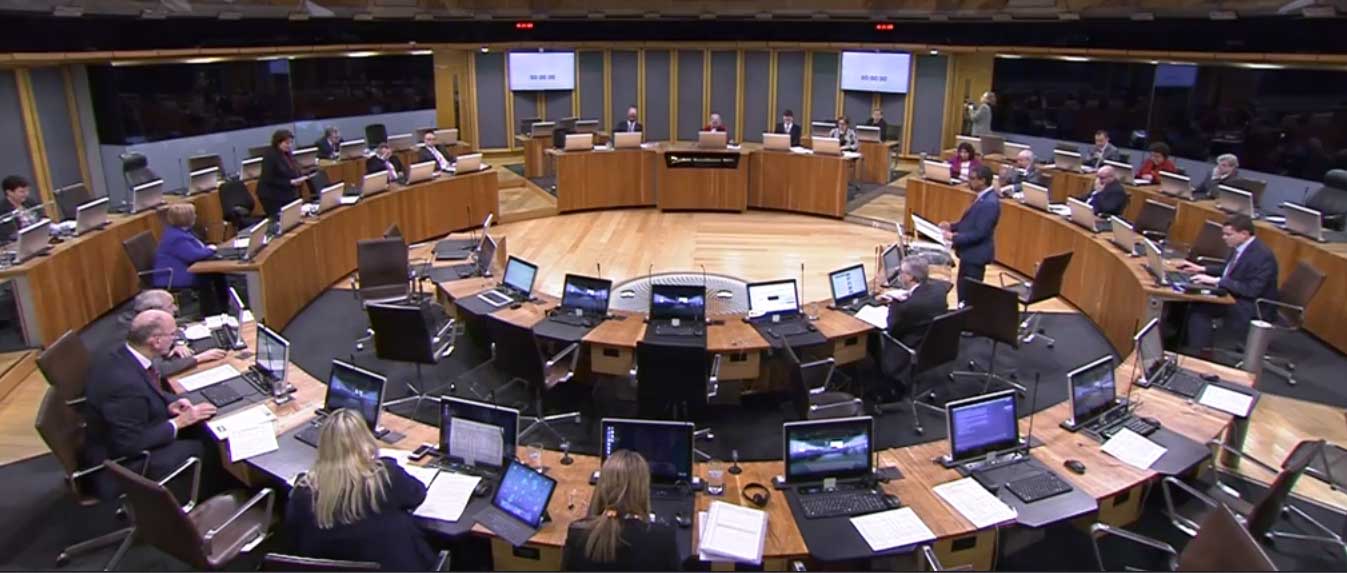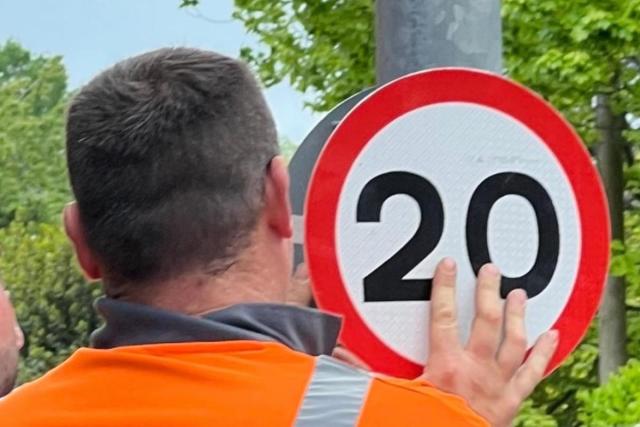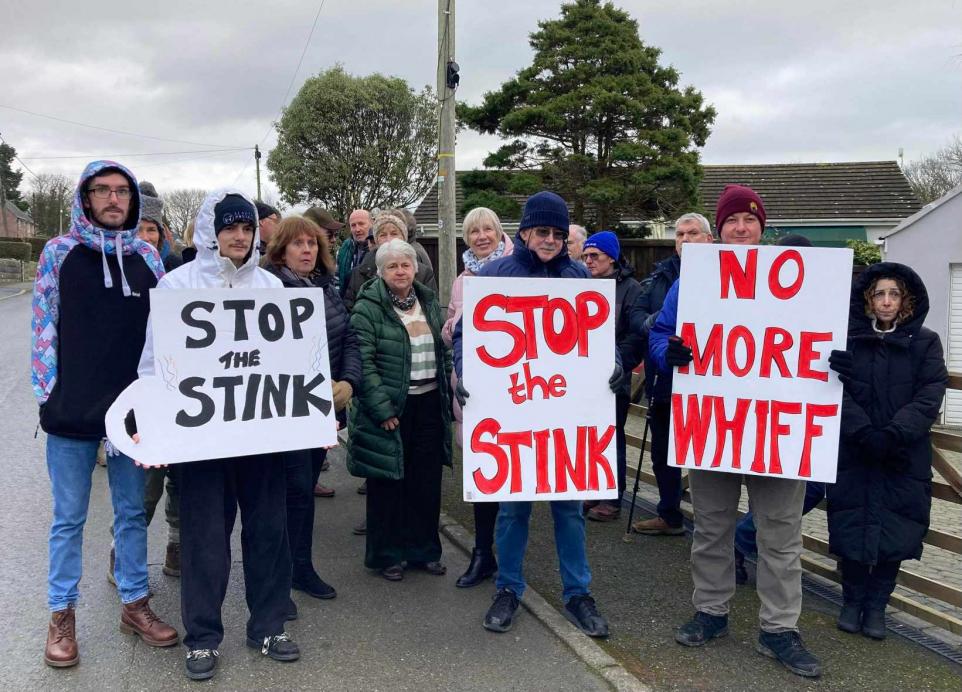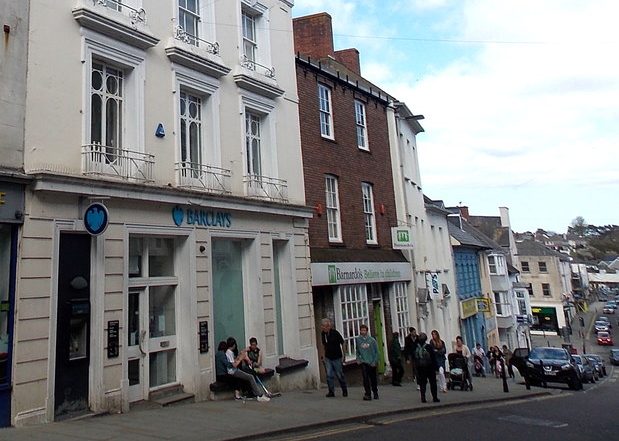Politics
It shouldn’t happen to a Health Minister

IT’S NOT easy being a Welsh Government Minister.
There are so many new words to learn when you get into office and so many old ones to forget.
For example, take the word ‘cut’. It’s a very simple three letter word. But once you become a Welsh Government Minister, you are not allowed to use it.
Instead, at least as far as Welsh Government policies go, the word ‘cut’ has to be replaced with the far more unwieldy ‘transformation’ or the two-word mouthful ‘transformational change’.
ANGRY ANGELA ATTACKS
As you will see elsewhere in this newspaper, Hywel Dda UHB – to nobody’s surprise – has been caught on the hop by people discovering that when it talks about ‘transforming clinical services’ it means ‘cuts and closures’. You could argue that cuts are in themselves transformational, at least in the same way that being guillotined was transformational for the French aristocracy.
On Wednesday (Jan 24), Vaughan Gething was faced with a barrage of topical questions, which he confronted with the enthusiasm and delight of Louis XVI on his final journey to Place de la Révolution.
You wouldn’t want to get on the wrong side of Angela Burns, the Carmarthen West and South Pembrokeshire AM who speaks for her party on Health in the Senedd.
Crikey Moses! After a brief initial question, she tore into the Health Board, the Welsh Government, the First Minister, Labour backbenchers, Mr Gething and almost managed to get to Uncle Tom Cobley and all in a positively breathless display of genuine outrage.
Picking up a copy of the Parliamentary Review of Welsh Health Services, unanimously backed by Senedd members the previous week, she handled it between two fingers as though it was a particularly badly soiled nappy.
It was quite bad enough, Mrs Burns said, for the First Minister and his backbenchers to behave in a supercilious and arrogant fashion towards members raising their constituents’ concerns, it was quite another to obtain cross party agreement on the strategic direction of Welsh health services and then ignore the very principles that underpin it.
Mr Gething got to his feet and momentarily looked shell-shocked. Unlike the First Minister, there were almost no Labour members present to prop him up, bray, and snipe at the opposition with sarcastic remarks. However, the Cabinet Secretary is nothing if not smooth and polished. More than capable of bandying around banal generalities, Mr Gething soon adjusted himself into his usual smooth delivery of assurances about ‘meaningful consultations’.
Demonstrating the same sort of faulty memory that could yet come to unglue his leader, Vaughan Gething continued by saying that his boss had not been in any way supercilious.
Mr Jones’ stock in trade is supercilious.
Perhaps Mr Gething had not been paying attention; because having watched the previous day’s First Minister’s Questions and the business statement which preceded Mrs Burns’ questions, you would have to say that Mrs Burns had it pretty much nailed on.
ASK ME NO QUESTIONS
It didn’t get much better for Mr Gething, despite his stream of soothing words and assurances of good intentions. There used to be a saying that you couldn’t knit fog. Well, you certainly couldn’t weave whole fabric out of Mr Gething’s non-answers.
Mr Gething was very clear that he couldn’t answer direct questions because of protocol and the risk that he might have to make final decisions on a consultation which had not yet started. Which was very odd, because the previous day Carwyn Jones had decided he wouldn’t comment because the consultation was ‘open’. Open or closed, Mr Gething was prepared to fall back on the ‘all changes are difficult’ line. As an alternative tack, he attempted a switch to ‘difficult choices have to be made’.
So often did he repeat these lines, or variations on them, that it appeared as though poor Mr Gething had got stuck in one of those time loops beloved of science fiction programmes that need to create a cheap episode to make up for blowing the make-up budget on Slurb the Invincible or some such in a preceding one.
WHERE’S HELP WHEN YOU NEED IT?
Paul Davies had a go after Mrs Burns. Mr Davies doesn’t really do splenetic outrage, but he was clearly peeved – testy even. In a calm and measured way, he berated the Health Board for even proposing, never mind contemplating the closure of Withybush Hospital.
In response, Mr Gething tried a different tactic. While he appreciated that local sentiment was strong, it would be the same across Wales as tough decisions – hard choices – had to be made everywhere across the nation. This was, Mr Gething suggested, a national issue.
Mr Gething’s words would have had more weight on that score had he been accompanied by members of the Welsh Assembly from his own party. Apart from Mark Drakeford seated to his right, Mr Gething appeared terribly alone. The rest of the chamber was devoid of a Labour presence, demonstrating just how seriously west Wales’ concerns were being taken by all those south Wales AMs upon which the party depends for its majority.
Simon Thomas, incongruously seated next to Neil Hamilton, was next to tackle Mr Gething’s dead bat defence.
Pointing out the way in which the First Minister had sought to use the Parliamentary Review in an effort to deflect either criticism or inquiry, Mr Thomas told the Cabinet Secretary that the review was published too late to influence any proposals advanced by Hywel Dda.
After ungallantly pointing out that Labour’s candidate in the 2015 General Election, Paul Miller, had stood on a platform of restoring the paediatric services to Withybush – which had been removed temporarily without consultation – and had still not returned, he suggested this was the opportunity to test the strength of the Parliamentary Review’s framework.
NO STOPPING A CONSULTATION
Mr Gething lost his way a little as he said it wouldn’t be right for him ‘to attempt to instruct’ the health board to stop its consultation now. That would be the consultation that has not started, as the Cabinet Secretary had previously made clear just minutes before.
Difficult conversations needed to be had, tough choices had to be made, and the public would be properly engaged in the process of helping to make those tough choices after taking part in those difficult conversations.
You could see the cogs clicking away as Mr Gething spun new golden platitudes out of old strawmen.
Joyce Watson, whose support for retaining services in the past was less than fulsome, said it was very important that the public was told Withybush was not closing immediately. As this had never been suggested anywhere, it was hard to see what point Joyce Watson was trying to make; but having been thrown a life preserver, Mr Gething clung to it. He agreed that there was no plan to close Withybush in the immediate future. A relief for those attending outpatients next week to have their bunions filed.
Mr Gething then proceeded to point out that other hospitals were also mentioned in the options that had been leaked and that there could be those hard conversations and tough choices to be made in respect of them. But never mind, there would be a genuine and meaningful consultation and, if not, there would be a meaningful and genuine one. That’s what he expected the Board to do. Although, of course, he couldn’t tell them that was what was needed, because he might end up having to make one of those difficult choices after hard and tough conversations.
HAMILTON’S FORK
Neil Hamilton was next. Reaching for his pantomime pitchfork, he rather nastily skewered the Cabinet Secretary on its tines.
Remarking on Mr Gething’s status as the government’s fire blanket for successive health board failings everywhere, he posed the rather more difficult question of whether the threat to Withybush could be boiled down to death by a thousand cuts?
Tellingly, he suggested: “It must be regarded as a ridiculous proposal to close Withybush—even in contemplation in the medium term, let alone the short term. The health board should, when it produces the list of options for people to discuss, avoid causing unnecessary alarm and consternation by producing extreme proposals that are not going to be followed through.”
He then rather neatly suggested the real problem was a complete lack of accountability in the health service. Community Health Councils, Health Boards, were not elected bodies and the truth was that everything ended up on the Health Secretary’s desk. ‘People on the ground feel they have no voice at all,” Mr Hamilton said.
Vaughan Gething could see the home stretch coming.
There would be a meaningful conversation about tough choices in a difficult consultation, in which the views of clinicians would be heard as well as those of the public. It would be rather mean to point out that there is a difference between hearing and listening.
Particularly as those conversations will be tough, difficult, hard, meaningful, and genuine.
Then Mr Gething concluded on a point that he must now be grateful he did not open with.
Concluding he volunteered, he didn’t want to be in the position in the future where the Government will be asked: ‘Why didn’t you do something about a part of the service that really has gone wrong?’
That remark rather fortunately leaves the question unasked as to what all the previous tough choices after hard conversations and meaningful consultations over the last twelve years were actually for.
That would be a difficult – if not unanswerable – question.
News
20mph U-turn: Some roads will return to 30mph following public outcry

IN a recent shift in policy, Transport Secretary Ken Skates announced that some roads in Wales will revert to a 30mph speed limit following significant public opposition to the Welsh Government’s £34 million initiative to impose a default 20mph limit. This move addresses the concerns consistently raised by many citizens.
The controversial policy, initially rolled out across Wales under former First Minister Mark Drakeford and his transport minister, Lee Waters, aimed at enhancing road safety. However, it has since faced backlash, illustrated by nearly half a million signatures on a Senedd petition opposing the change.
“We’ve put our hands up to say the guidance has to be corrected,” Skates stated, acknowledging the widespread dissatisfaction with the policy’s implementation. He emphasised the need for targeted 20mph zones, particularly in sensitive areas such as near schools, hospitals, and densely populated housing estates. Yet, he admitted that certain routes should not have been included under the stricter speed limit.
Swansea Council Leader Rob Stewart welcomed the revised approach but highlighted the financial burden of changing road signage, urging the Welsh Government to assist with the expenses. Stewart praised Skates’ “pragmatic approach” and stressed that the government should not impose the financial strain on local councils, which are already facing tough budgetary decisions.
The policy has had its proponents, particularly among cycling groups and safety advocates who argue that the lower speed limits contribute to safer community spaces. Despite this, many have called for a more nuanced application of the speed limits rather than a blanket reduction.
In response to the backlash, Skates is set to present the planned adjustments in a forthcoming statement to the Senedd. The changes will allow local councils the autonomy to restore the 30mph limit where deemed appropriate, potentially affecting up to 10 roads in Swansea alone.
Leaders from other councils, including Huw Thomas of Cardiff, expressed relief over the change. Cardiff, where the majority of roads were already under a 20mph limit, saw a favourable reception of the policy. Nonetheless, the decision to empower local governments has been largely welcomed.
The Welsh Conservatives, through their transport spokesperson Natasha Asghar, have voiced strong opposition to the original policy, criticising its expansive application. Meanwhile, Plaid Cymru leader Rhun ap Iorwerth called for a more carefully considered implementation, supporting the principle of 20mph zones but criticising their inconsistent enforcement.
Responding to comments made by Ken Skates, Labour’s Cabinet Secretary for Transport on potential changes to the 20mph guidance, Natasha Asghar MS, Welsh Conservative Shadow Transport Minister said: “The people of Wales have rightfully taken significant issue with Labour’s 20mph policy and ‘correcting guidance’ will not be enough to ease concerns.
“The Welsh Conservatives are the only the party to have consistently voted against the ridiculous 20mph policy involving 97% of previously 30mph roads and a £9 billion hit to the Welsh economy.
“The Welsh Conservatives want to see this policy scrapped and have given the Labour Government a number of opportunities to vote to do so. A more targeted approach is needed with the support of the Welsh people.”
News
Withyhedge Landfill faces political allegations and regulatory enforcement

STEPHEN CRABB MP has vociferously criticised the Welsh Labour Government for its management of the Withyhedge Landfill in Pembrokeshire, claiming it has turned the area into a “dumping ground” for waste from across Wales. Mr. Crabb, supported by Paul Davies MS, alleges that substantial lorries deliver waste daily to the site, causing significant distress to local residents. The MP has repeatedly written to the First Minister, demanding immediate intervention, yet claims to have received no response.
Compounding the controversy, Mr. Crabb highlighted a substantial £200,000 donation to Vaughan Gething’s recent election campaign from the landfill’s owner, questioning the impartiality of regulatory practices. Despite ongoing political efforts, Mr. Crabb asserts that resolution lies solely with the Welsh Government, which has the ultimate authority to address these grievances.
Meanwhile, Natural Resources Wales (NRW) has escalated its enforcement actions against the site’s operators, Resources Management UK Ltd (RML), amid persistent community complaints about odour and gas emissions. A recent Regulation 36 Enforcement Notice demands a series of remedial actions by RML, with deadlines stretching into May 2024. These measures focus on improving the site’s gas management infrastructure and capping exposed areas to mitigate odour issues.
Huwel Manley, Head of South West Operations at NRW, expressed understanding of the community’s frustration, emphasizing the urgency of the required actions. “We are committed to ensuring RML Ltd. deliver these actions rapidly and effectively. Continued non-compliance will lead to further measures, potentially including a suspension of the environmental permit,” stated Mr. Manley.
Pembrokeshire County Council, represented by Chief Executive Will Bramble, also voiced disappointment over the ongoing issues, affirming full support for NRW’s stringent enforcement steps. The Council and NRW are working closely to monitor the situation and have encouraged the public to report any odour incidents promptly to aid in effective resolution.
As the deadline approaches, all parties involved are under increasing pressure to demonstrate tangible improvements and ensure the health and well-being of Pembrokeshire residents are prioritised.
Politics
Barclays closure in Haverfordwest sparks calls for banking changes

A CALL for Pembrokeshire County Council to potentially change its banking arrangement with Barclays, after the bank announced it was closing its county town branch, is expected to be turned down next week.
Barclays Bank in Haverfordwest, located on the town’s High Street, is to close on May 10.
The council has had a banking services contract with Barclays since 2013, with the most recent contract – for four years – signed last May following an independent review.
Councillor Huw Murphy, in a notice of motion to be heard by Pembrokeshire County Council’s Cabinet meeting of April 22, is asking the council to review its banking arrangements with Barclays following the announced closure.
“The loss of many banking facilities within Pembrokeshire over recent years has had a detrimental impact on many town centres such as Tenby, St Davids, Fishguard, Milford Haven, Narberth, Newport and Pembroke and Pembroke Dock and will soon impact Haverfordwest with the loss of Barclays bank to the town.”
He said the loss of a branch “not only impacts upon town centres and businesses but also disproportionately impacts the elderly who are less likely to embrace on-line banking options”.
After the Haverfordwest closure was announced, a spokesperson for the bank said that the Haverfordwest branch only had 32 regular customers who used the branch exclusively for their banking and do not interact with Barclays in any other way.
A report for cabinet members says, in terms of the impact on Pembrokeshire residents, Barclays has said that it is “not leaving Haverfordwest and [will] continue to provide face-to-face support for those who need it” via community locations.
It adds: “Everything else can be done via alternative channels such as everyday transactions via the Post Office. We will be making personal contact with our regular and vulnerable branch users to discuss their options and guide them through alternative ways to bank.”
Two options were presented to cabinet following Mr Murphy’s motion, to retender the banking services contract, and, the favoured, to work with Barclays to ensure a community location is set up in Haverfordwest.
The report says the costs associated with moving to a new service provider “can be excessive and in some cases greater than the cost of the annual contract value,” adding: “Whilst the costs can vary between local authorities it can be in excess of £50,000.”
For the second, favoured option, the report says: “An integral part of the branch closure communication, Barclays advised that they will be setting up a community location in Haverfordwest.
“Whilst this is a change to how Barclays currently operate in Haverfordwest, this concept mirrors the successful implementation of a hub located within The Giltar Hotel in Tenby that operates twice a week.”
It adds: “Discussions have commenced with Barclays to see what the council can offer in terms of locations.”
Cabinet members are recommended to back the second option.
-

 Business4 days ago
Business4 days agoBluestone National Park Resort payments expected to end
-

 Community6 days ago
Community6 days agoThe Harbourmaster: Special rail excursion draws crowds to Milford Haven
-

 News5 days ago
News5 days agoDragon LNG ‘monitoring’ scrap car blaze in Waterston
-

 News6 days ago
News6 days agoSearch for Luke, 19, reported missing in the Pembroke Dock area, continuing
-

 News3 days ago
News3 days agoSearch for missing teenager Luke continues at Pembroke Dock
-

 Crime4 days ago
Crime4 days agoEstate agents admit health and safety failings following fatal market incident
-

 News3 days ago
News3 days agoMan jailed after scarring police officer in Narberth altercation
-

 News1 day ago
News1 day agoPolice issue update on the search for Luke, missing from Pembroke Dock




































